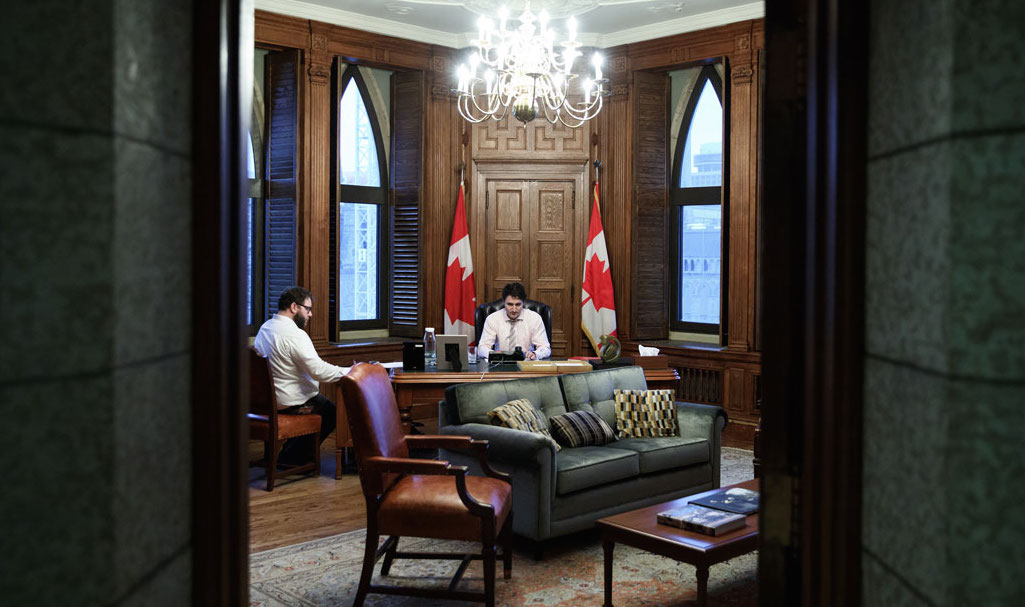Gerald Butts, Prime Minister Trudeau’s longtime friend and closest adviser, has resigned.
Just about every Ottawa insider has commented on this most recent, dramatic development in the Wilson-Raybould/SNC-Lavalin affair. From the tenor of their remarks, it’s obvious many of those who commented are intimates of this behind-the-scenes figure who, we are told, wielded enormous power.
To take but one example, the CBC’s Neil Macdonald writes that Butts “can be eloquent in person, and loves being the guy who commandeers the discussion with an original take,” adding that the prime minister’s former principal secretary’s favourite dinner table banter was “about wine and literature.”
Most Canadians reading those and similar words could be excused for scratching their heads in puzzlement. Butts did have an active social media presence. However, except for an elite group of Ottawa dinner-party denizens, he was otherwise an invisible person.
Unlike cabinet ministers, Butts was not publicly sworn in to his job.
The government did not publish a mandate letter for Butts, as it did for all cabinet ministers. In fact, there is no publicly available job description for the principal secretary or any other staffers in the Prime Minster’s Office (PMO).
While Butts frequently dined with members of the Ottawa media elite, he never gave on-the-record media interviews. He was the ultimate backroom operator — unelected and unaccountable to anyone except his boss.
A PMO with enormous, undefined, unchecked power
The PMO, of which Butts was the senior and most powerful member, is a secretive palace guard. It operates outside public view and scrutiny. PMO staffers are not public servants. They are political appointees, and their role is as much to foster the partisan political interests of their party as it is to coordinate government policy in the public interest.
A number of experts have noted that, since the 1960s, Canadian democracy has degenerated into a kind of executive dictatorship of the PMO. Both Liberal and Conservative elected members of Parliament have frequently complained, in private, about being relegated to the role of trained seals. Their job is to clap when ordered to do so by the PMO.
In the case of Butts, a goodly number of Liberal MPs are quietly cheering at his departure. He was not, it seems, popular with the rank-and-file of Justin Trudeau’s elected caucus.
Many jaded Ottawa insiders will tell you there’s nothing to see here, that this style of government is all par for the course. Federal governments have operated this way for decades, they say, at least since Justin Trudeau’s father’s time.
As one insider put it to this writer: “Canada is a diverse country and governing it requires a complex balancing of competing interests. There are some hard decisions that are best taken in private and away from public scrutiny.”
There are a great many in Ottawa power circles who find it hard to conceive of running the federal government in any other way. The current prime minister, however, is not one of those. In fact, during the last election campaign, in 2015, Justin Trudeau unequivocally promised to be a very different sort of leader, to govern in a far more collaborative, open and transparent way than did his predecessors.
In an interview with the CBC’s Peter Mansbridge during that campaign, Trudeau said:
“One of the things that we’ve seen throughout the past decades in government is the trend towards more control from the Prime Minister’s Office. Actually it can be traced as far back as my father, who kicked it off in the first place.”
Mansbridge expressed some surprise that Trudeau was so willing to criticize his father, to which the Liberal leader replied:
“I think I actually quite like the symmetry of me being the one who’d end that. My father had a particular way of doing things; I have a different way, and his was suited to his time and mine is suited to my time … I think we get better public policy when we’re done, when it’s done openly and transparently [emphasis added].”
Justin Trudeau went on to talk about how he was of a “different generation” and pointed to his policy of “proactive disclosure” of MPs’ and senators’ expenses as an example of his commitment to transparency.
“I have actually demonstrated an openness and transparency in my approach,” he said, “that isn’t just a promise, but actually has action to back it up.”
Voters, many of whom abandoned the NDP in 2015 because Trudeau’s Liberals seemed to embody a more hopeful and positive vision, can judge for themselves whether or not the current prime minister has lived up to his promise to end the secretive and centralized style of government he decried during the election campaign.
Karl Nerenberg has been a journalist and filmmaker for more than 25 years. He is rabble’s politics reporter.
Help make rabble sustainable. Please consider supporting our work with a monthly donation. Support rabble.ca today for as little as $1 per month!



